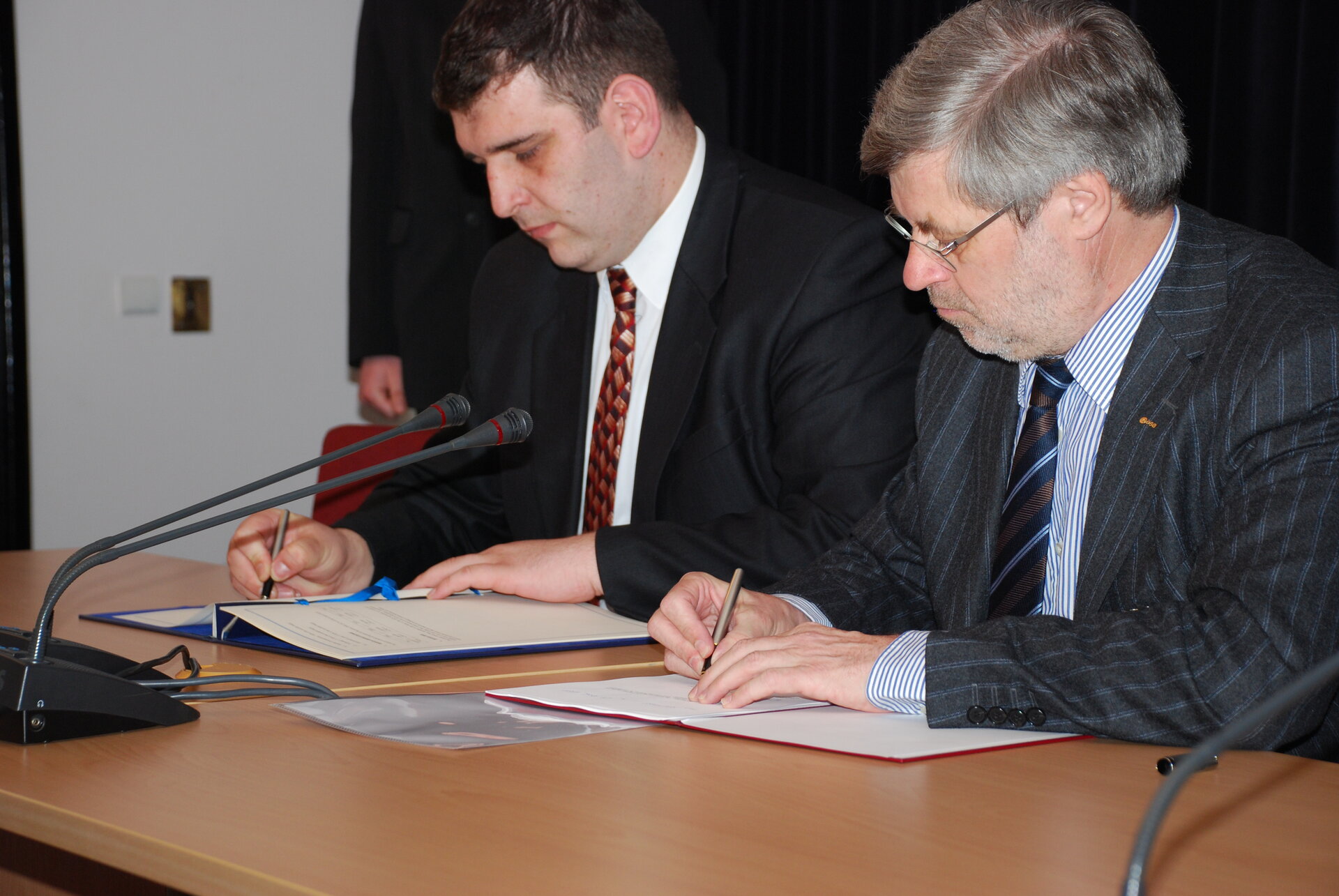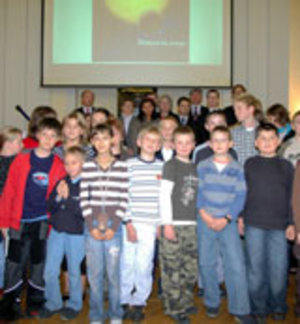Poland and ESA sign the Plan for European Cooperating State
On 28 April 2008 Poland reinforced its relations with ESA by signing the Plan for European Cooperating State Charter. This is a direct follow up to the signing of the European Cooperating State Agreement in April 2007.
The Plan for European Cooperating State (PECS) Charter was signed in Warsaw by Rafal Baniak, Secretary of State in the Polish Ministry of Economy, and Chris de Cooker, Head of the International Relations Department of ESA.
By signing the Charter, Poland now becomes the fourth European country to subscribe to PECS. Hungary signed the Charter in November 2003, the Czech Republic in November 2004 and Romania in February 2007.
Poland has a long-standing tradition in space activities. Its institutions have participated as co-investigators in many ESA science projects, including Ulysses, ISO (archive data), SOHO, XMM, Cluster; Double Star, Huygens, Mars Express, Herschel (hardware for the HIFI instrument), Planck, XEUS, Integral, Rosetta and BepiColombo. Polish researchers were also involved in developing the instruments for the ExoMars rover.
In the field of Earth observation, Polish principal investigators are active users of Envisat data, while a number of Polish students have received training and been given fellowships at ESA, as well as the space establishment of Member States. At present, several students are involved in the ESA educational project known as the Student Space Exploration and Technology Initiative (SSETI).
The signing of the PECS Charter represents a new milestone in the relations between Poland and ESA as it means that Poland will now be able to participate in more ESA programmes and activities.
Initially the PECS Charter will allow Poland to take part in ESA’s space science, human spaceflight, navigation, telecommunication, and technology research and development programmes for a five-year period





